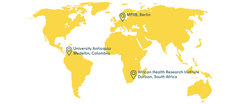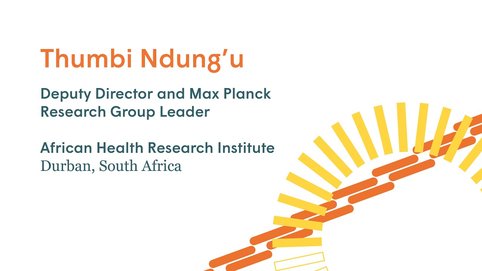'A different way of working'
Interview on the COVID-19 situation in South Africa with Thumbi Ndung'u
South Africa is under Quarantine since March 26. Last Monday, we contacted Thumbi via video call in Durban, to hear about his situation.
“The situation here in South Africa has been changing over the last two months. It started with some information coming in of infections elsewhere and the fact that it might spread to Sub-Saharan Africa, which was the case on February 27. After this there were a few suspected cases of COVID-19 in South Africa, those cases were confirmed and then the numbers started to go up quite rapidly. At first, there was a bit of restriction of movement, aeroplanes where prohibited from flying to South Africa. And all of a sudden, the South African President ordered a lockdown. This meant that everybody had to stay home.
Even before the lockdown was announced, we decided to suspend some studies, to protect our staff and patients. So, when the lockdown was announced, all that it did was actually accelerate what we had been doing.
Obviously, this has really impacted our work: We had to suspend all of our studies, other than those that are directly related to COVID-19.
We are actually planning some studies on COVID-19 and we have submitted them to ethics review quickly. These have to do with surveillance of COVID-19 cases in Durban But we are also planning some mechanistic studies in order to understand better the presentation of this disease and how it might particularly affect HIV and TB infected people.
We have a unique situation here in South Africa because we have a very high HIV and TB burden. People with HIV or TB might be at increased risk of either disease acquisition or more severe disease presentation. We don’t know that for sure, but we are in a unique position to address this particular question. Of course, we also know that so far here in Sub-Saharan Africa the cases have not been as many as reported for example in Europe. So, we are also interested in trying to find out why this is the case: Is it just a matter of time or is there something different about the way the disease presents here? Now all these are questions that we can help address.
Although I have been working mostly from home, I’ve been in close contact with colleagues, trying to prepare for the work that we are planning around the virus. It’s a very different way of doing things and working, but we are all very happy to contribute in the small way that we can to end this major epidemic. We hope that things can go back to normal as quickly as possible.”


